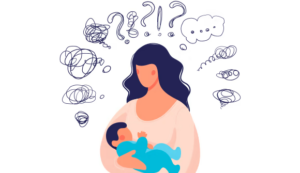Recently, the Diagnostic and Statistical Manual of Mental Disorder has renamed Seasonal Affective Disorder (SAD) as Depressive Disorder with Seasonal Pattern. This describes the condition more precisely because SAD is not a distinct disease, rather depression that worsens at the same time each year – in general starts in fall, peaks in winter, and subsides by spring. A rare form of it known as ‘Summer Depression’ starts in late spring or early summer and ends in fall. It can deeply impact the quality of your life.
Symptoms of Seasonal Affective Disorder (SAD):
- Intense feelings of worthlessness or guilt.
- Lack of enjoyment in activities they took pleasure in doing at other times of the year.
- Difficulty in concentration.
- In severe cases, it can also lead to suicide.
Winter Symptoms:
- Less energy
- Trouble concentrating
- Fatigue
- Greater appetite
- Increased desire to be alone
- More need for sleep
- Weight gain
Summer Symptoms:
- Less appetite
- Trouble sleeping
- Weight loss
Diagnosis of SAD:
- It must occur in the same season each year for at least two years in a row.
- Symptoms must disappear or diminish with the new season.
- It is also important to not confuse seasonally triggered depression with depression caused by recurring psychological or social stressors (job pressure, living alone in certain months of the year, etc.).
Therefore, Seasonal Depression is basically a mood disorder that happens every year at the same time. It usually starts in young adulthood and is more common in women than men. Though exact causes are unknown this can be caused due to:
- Certain hormones deep in the brain trigger attitude-related changes at certain times of the year.
- It might be related to hormonal changes.
- Less sunlight during fall and winter enables the brain to make less serotonin, a chemical linked to brain pathways regulating mood.
- When nerve cell pathways in the brain don’t function normally, the result can be depression.
On the part of the individual, one has to do the following before seeing a therapist:
- Recognizing your sleep patterns, jotting them down.
- Help yourself or your known ones with symptoms of Seasonal Affective Disorder (SAD) by encouraging them to:
- Get a walk outside. Be in the sunlight.
- Exercise regularly.
- Form a schedule to be with a friend.
- Eat healthily.
- Find ways to relax.
- Use dawn stimulators
- Add aromatherapy
- Stick to a schedule
- Take a vacation
- Keep a journal
- Get more Vitamin D
- Be proactive
SAD Treatment:
This usually includes the following:
- LIGHT THERAPY: A person has to sit close to intensely bright light for 30 to 90 minutes every morning. Unlike normal light bulbs, Light therapy bulbs have wavelengths that allow the skin to produce Vitamin D.
- MEDICATION: Antidepressants can also be helpful at times.
- PSYCHOTHERAPY: Cognitive Behavioral Therapy can be particularly useful in helping people identify and manage their feelings.
Sad Therapy:
- The proven most effective form of therapy for SAD is considered to be Light Therapy or phototherapy, also known as heliotherapy. Exposure to some form of bright light in proper intensity or wavelength as directed by the therapist is effective for treating SAD.
- Consultation with the therapist is mandatory as it can even lead to death.
- Talk sessions with experts are a way to resolve issues related to it.
- Also, Cognitive Behavioral Therapy (CBT) has proved to be quite effective in treating SAD.
A mild form of Seasonal Affective Disorder (SAD) starts when days get shorter and colder. People who have a family history or are diagnosed with depression or bipolar disorder are more susceptible to SAD. It is necessary to properly treat SAD as all forms of depression limit people’s ability to live their life to the fullest, enjoy their families, and function well at work.
Feel free to reach out to us for counseling and psychotherapy sessions from our trained psychologists, and psychotherapists.




